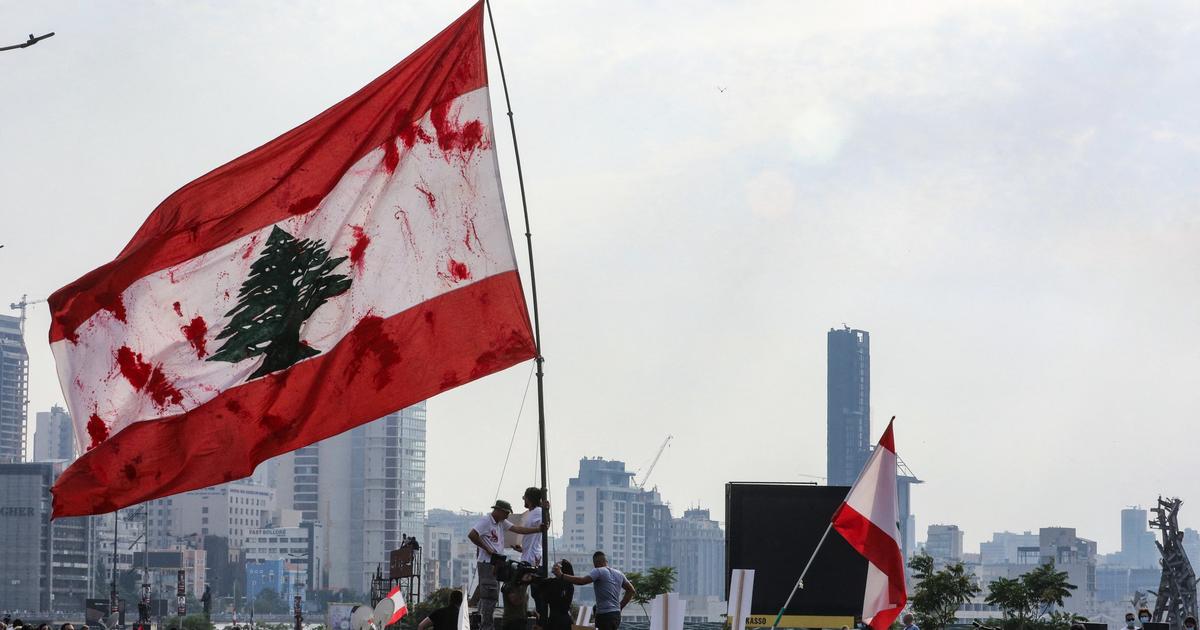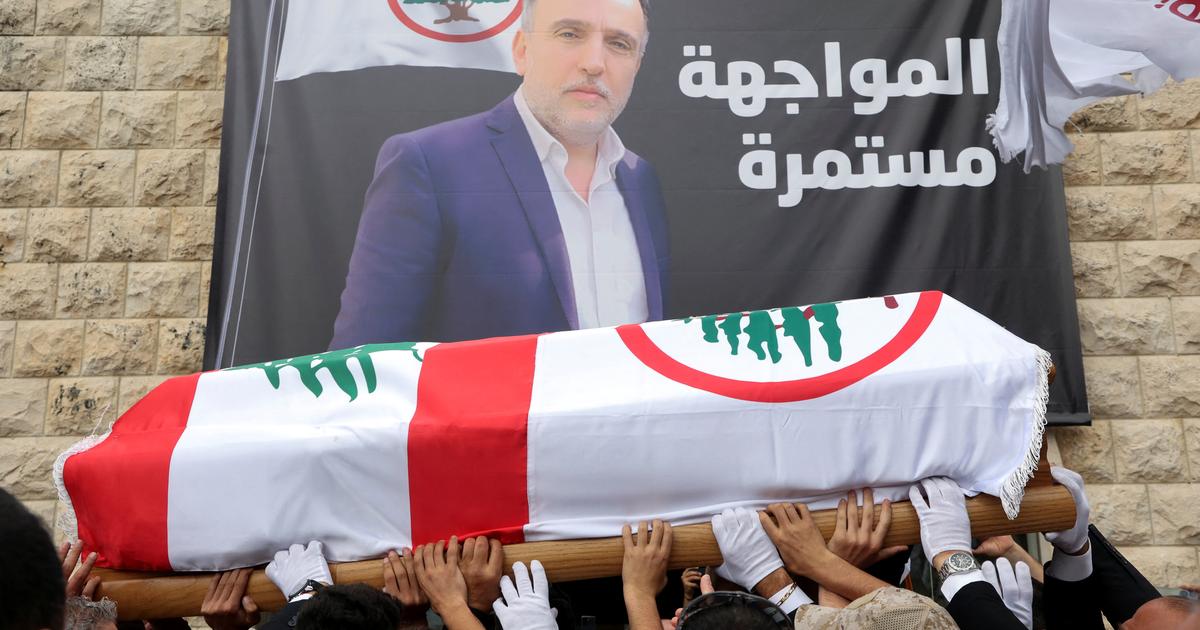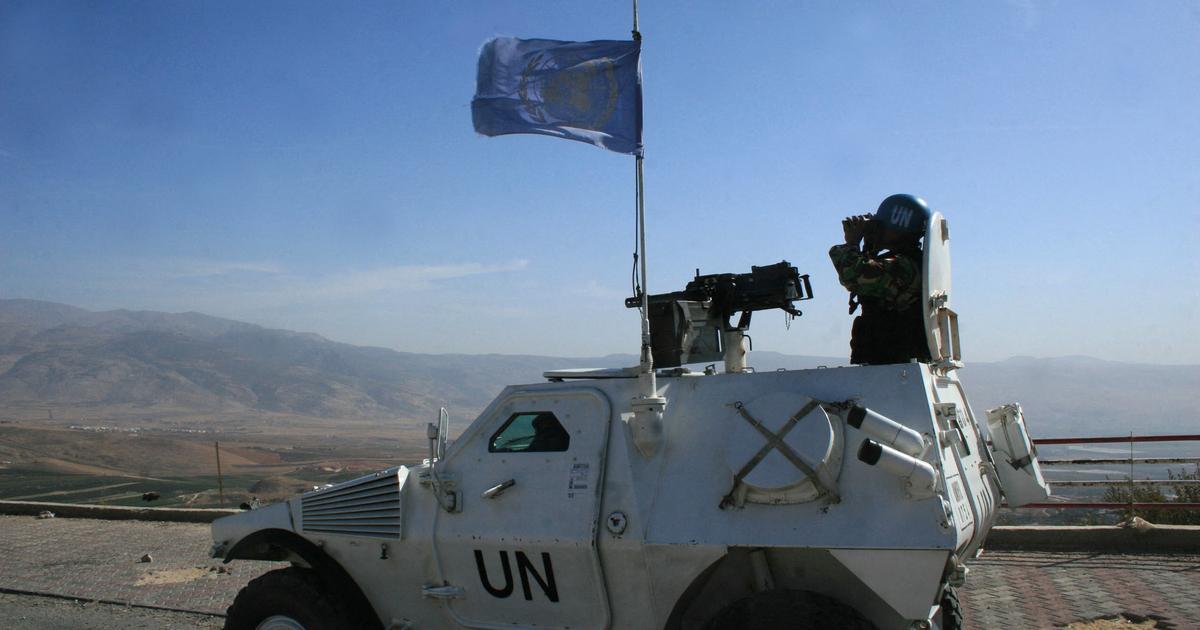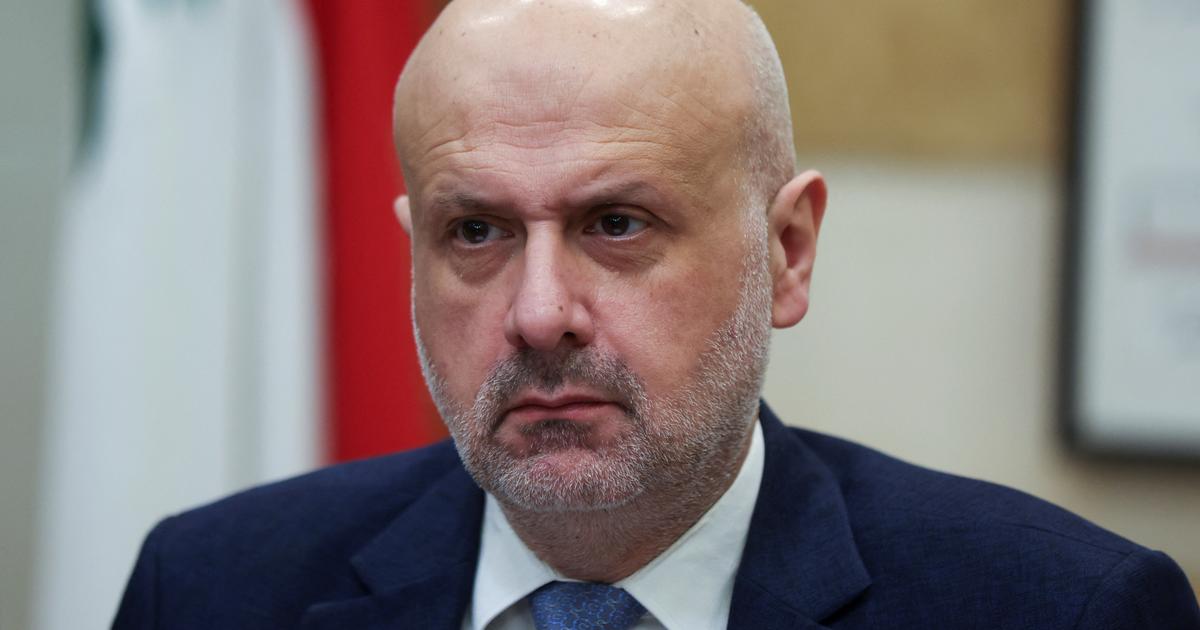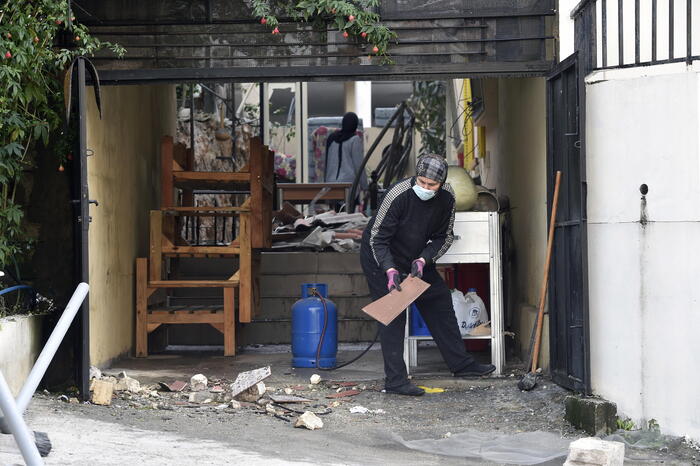Thousands of Lebanese gathered in the port of Beirut late Wednesday, the year after the devastating explosion that killed more than 200 people and injured nearly 7,000.
Images from international television channels showed the victims' families embracing their photographs while demanding justice in their memory.
Surrounded by a crowd, they participated in an ecumenical religious ceremony in the same port area, which still bears the scars left by the outbreak of hundreds of tons of ammonium nitrate stored in unsafe conditions for years.
While the interfaith event was taking place, the security forces responded by firing tear gas grenades and pressurized water jets at protesters who had thrown stones at them, Reuters reports.
A large banner displayed in the port read: "We are hostages of a murderous state."
There were also clashes, in which several shots were heard in the air, between members of rival parties around the Parliament, in the nearby Gemmayze district.
At least eight people had to be hospitalized.
More information
Lebanon tries to emerge from its deepest crisis with a businessman at the head of the Government
Lebanon falls into the abyss of a failed state a year after the explosion
A year after the catastrophe, no official official has yet been indicted in the open judicial investigation, which has stalled amid a serious economic and political crisis in Lebanon.
Many of the high officials cited by the courts refuse to waive their immunity under the law.
The explosion of ammonium nitrate, used for fertilizers and explosives, produced a shock wave that hit more than 75,000 homes, displaced 300,000 Beirutis from their homes, and caused damage estimated at up to 5,000 million euros.
In a report released Tuesday, Lama Fakih, director of crisis and conflict at Human Rights Watch, said that “the evidence collected clearly shows that [the outbreak] was due to actions and omissions by senior Lebanese officials who did not report the danger. existing".
The Maronite Christian patriarch, Bechara Boutros Rai, said in the course of the ecumenical ceremony that "not only the families of the victims demand justice, but it is all Lebanese who demand to know who was responsible," reports Reuters.
"We want to know who brought the explosive substances, who allowed their discharge and where they were destined," Cardinal Rai claimed before the crowd.
Join EL PAÍS now to follow all the news and read without limits
Subscribe here
The ammonium nitrate was brought to the port of Beirut in 2013 aboard a Russian ship, which unloaded more than 2,700 tons, although at the time of the explosion it is estimated that about 550 tons were stored, until now it is not known who was the importer and where the rest of the cargo went.
Donor conference led by Macron
French President Emmanuel Macron, who led a virtual donor conference, affirmed that "the crisis in Lebanon is not a blow of fate or a fatality,"
Silvia Ayuso
reports
.
The president was addressing the Lebanese president, Michel Aoun, invited to the conference. “It is the result of individual and collective bankruptcies, and of unjustifiable failures. And the entire Lebanese political class, all of it, has not ceased to aggravate it, putting their individual interests before those of the Lebanese people (…) I think it is a historical and moral error, ”he warned. Macron offered 100 million euros in emergency aid for the Lebanese people and 500,000 doses of vaccines against covid-19.
The president of the United States, Joe Biden, also pledged that his country contribute another 100 million dollars (about 85 million euros), within the framework of the urgent needs program for Lebanon, evaluated by the UN at 350 million euros. euros.
From Rome, Pope Francis sent a message to the conference for contributions from countries to help Lebanon "enter the path of resurrection."
The appointment of the Sunni Nayib Mikati, a billionaire who has already served as prime minister, has opened a way out for a week for Lebanon to get away from the current turmoil of misgovernment.
All attempts to form an Executive have crashed in the last year against sectarian disputes between its 18 ethnic and religious communities, while the economy is rapidly sinking into bankruptcy.
Israel attacks Lebanon after rocket fire
The firing of three rockets from Lebanon, two of which landed on Israeli territory on Wednesday, prompted the Israeli army to respond with three successive rounds of artillery, in one of the most serious armed clashes in recent months.
The incident comes within the framework of a growing escalation of tension between Iran and Israel, following the attack that took place in the waters of the Gulf of Oman last week against a tanker operated by an Israeli company and in which two crew members were killed.
The projectiles did not cause personal injury, as they hit uninhabited areas around Quiryat Shmona, a city near the border, although they caused a small forest fire. No Lebanese armed group claimed responsibility for the rocket fire, although military sources cited by the Hebrew press consider it the work of Palestinian militias established for decades in Lebanon. On July 20 there was already another rocket launch from Lebanon that was replicated with successive artillery volleys.
That area is under the control of the Shiite Hezbollah guerrillas, an ally of Iran.
The United Nations Interim Force for Lebanon (UNIFIL), deployed on the troubled border, urged both sides to exercise maximum restraint and prevent an escalation on the symbolic anniversary of the Beirut explosion, according to a statement quoted by Reuters.
On the other side of the Blue Line, Spain has more than 600 soldiers deployed along the Israeli border within the United Nations interposition force, in the Marjayun area.
It is the largest Spanish military contingent abroad.
On January 28, 2015, an artillery shell fired by an Israeli battery during a confrontation with Hezbollah took the life of Spanish corporal Javier Soria Toledo.
His family received compensation of 200,000 euros from the State of Israel.
Israel and Hezbollah engaged in an open war in Lebanon in the summer of 2006. Six years earlier, the Israeli Army withdrew from southern Lebanon, which it had held under its control since 1982. Israel watches in the north what it considers to be one of Its main threats: Hezbollah's arsenal of tens of thousands of rockets, Iran's spearhead on the same border line. After having dismantled in recent years a network of tunnels dug by the Shiite militia under the dividing line, Israel fears a new confrontation with a deluge of projectiles.

/cloudfront-eu-central-1.images.arcpublishing.com/prisa/KEA45STFHXMNTIYLJ3XHGFWZS4.jpg)
